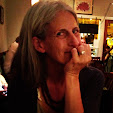21 February 2009
The Memphis Public Library maintains a wiki for the statistics they track. I think this might be helpful for any mid-size to large library. Instead of each department having to publish statistics separately and then someone taking another entire step to combine the stats, all would be available immediately, and easily accessible, on the wiki.
I am very impressed by the "Biz Wiki" maintained by Chad Boeninger at Ohio U. in Athens Ohio. He has created a very comprehensive alternative source of information for business research. As he points out, traditional business information resources are not always reliable because the business world changes so quickly and because the sources are difficult to update. Especially for investors, information required is sometimes difficult to locate and is out of date by the time the investor has found it. Biz Wiki , all in one site, combines FAQ, step-by-step instructions, and sources for researching business information. Chad is available to help, in fact when I was researching this question, he was online. He has several videos embedded in the web site and seems really to know his subject. The page would be helpful to the library patrons interested in investing or job searches, but is mainly directed to students investigating questions about general business, international business, or marketing.
A public library in South Bend, Indiana keeps a subject guide wiki. A creative use of this wiki is the subject heading "Local Authors." This link takes us to a list of authors who live or used to live in the area, a short bio, a link to the author's website and blog if available, and the books by this author in the library's collection. I think any public library could use this idea to good advantage. An academic library or special could use the same idea for easy access to a list of faculty authors or employee/member authors.
2. Wikis, beyond any other technology, has us rethinking the word authorship. Describe why wikis are having us rethink authorship (the example of wikipedia is not allowed, but the links on the right are).
How can our traditional concept of the word "author" be applied to a document that is open to additions, deletions, changes, truths, and falsehoods by almost anyone who knows how to use the computer technology of a wiki? Obviously, it can't. Our idea of Herman Melville, sitting at a small table in the light of a window, scratching away with a turkey feather & bottle of ink, and eventually coming up with Moby Dick is outdated. Even Raymond Chandler on his typewriter, Barbara Kingsolver recording her own books for audiobooks listeners, and Stephen King publishing a story exclusively for Kindle are images of our traditional understanding of "author." Corporate authorship, an understood concept in library cataloging, can be confirmed by allowing limited access to a document within an organization. If an individual decided to run away with a collaboratively created document within a community, legal issues would be fairly clear.
The whole idea of authorship takes on a completely different level of uncertainty when the document or artwork uses any of the profusion of images, sounds, and writings available through modern technology. A perfect example of this is a lawsuit between the artist Shepard Fairey, the AP, and Mannie Garcia. Garcia photographed Barack Obama at a public event as a free-lance photojournalist. The AP published the photo online. Fairey used the photo, assuming it was in the public domain, to create his iconic red, white and blue "Hope" poster for the Obama presidential campaign. One of the things that makes this case different from most copyright/ownership/authorship cases is that money and profit are not the central point of the suit. Fairey donated his work to the campaign and did not earn truckloads of money from his work. The issue is ownership, credit, and authorship in and of itself.
For a comprehensive report on the situation, listen to Terry Gross's coverage of the situation on her radio show "Fresh Air" broadcast on Thursday February 26:
http://www.npr.org/templates/rundowns/rundown.php?prgId=13&prgDate=02-26-2009&view=storyview
3. Describe either how you may use a wiki in your own personal or professional life or how a non-library business may use one.
The first idea I had was a way to streamline a slew of about 20 emails my husband & his family have been exchanging this week. We are all worried about his mother and everyone has something to say, but keeping track of all these emails is a real pain. Thus the wiki page, "GrandmaBetty."
For library applications, I especially like the idea of using a wiki to track statistics. A wiki could also be used for book groups. An idea I had that I didn't find in use so far (in my limited searching. . .I'm sure someone else has thought of this, too) is to use a wiki as a forum for a library-sponsored book group formed for patrons who are homebound or otherwise unable to get to book club meetings.
A non-library business application could be implemented even at a place like The Wildlife Center, where I am a volunteer. Last fall, several of us who are regular volunteers there took a weekend "Basic Wildlife Rehabilitation" course. Since then, we have tried to keep in contact and work out the best ways to present suggestions to the veterinary staff at the Center. A wiki would be a better way to develop these plans and documents than the proliferation of emails we have been generating!


No comments:
Post a Comment